Writing about Chris Dombrowski’s 2016 book Body of Water—which recently appeared in the Wall Street Journal’s list of the five best books on angling—John Gierach described Dombrowski’s voice as “concise language that reminded me of Gary Snyder one minute and John McPhee the next.” Dombrowski’s most recent book, The River You Touch, has been described by USA Today as “A poignant rumination on marriage, parenthood, friendship and what it means to connect with nature.” Writer, poet, teacher, and fishing guide, Dombrowski recently sat down with host of the Reading the Water podcast Tim Schulz in its second episode, “Don’t Let Your Fishing Interfere with Your Fishing,” to discuss his journey to becoming a writer and much more.
Dombrowski grew up in Michigan and migrated to Montana, which was a natural path for a young boy who spent summers with his friends bumming around Michigan’s Au Sable River, incessantly bugging the stodgy old dudes “coming in with a slight hangover and raccoon eyes from their guide day” for information, or better yet, to “Please, God, float us.”
Years later, Dombrowski towed his drift boat into Twin Bridges, Montana, and the rest is—as they say—history. From his first gig with “that door of fate opening up,” to an inexperienced guide learning to “embrace the learning curve,” to an accomplished guide rowing the likes of David James Duncan and Jim Harrison down Montana’s storied rivers, Dombrowski cracked the code to blending family, friends, fishing, and writing into the romantic lifestyle so many nine-to-five desk jockeys fantasize about.
“C.D.,” Dombrowski’s longtime friend once told him during a clumsy day of fishing from the front of Chris’s boat, “I’m not going to let my fishing get in the way of my fishing.” A philosophy Dombrowski has embraced from the start.
“I love to be outside,” Dombrowski says. “I don’t mind being around people. In fact, for a hermit, I can be pretty social, and I guess I saw guiding as an alternative way to make a living.” Guiding, Dombrowski says, was a profession before it became a vocation. But writing was something he had to do. He felt the calling the day his high school teacher gave him A River Runs Through It and continued to “press books into my hand by writers who depicted the natural world, or whose characters trafficked in it.”
More Like This
“Suddenly,” Dombrowski says, “I thought, I have to do this.” And do it he has, with two books of poetry, Earth Again and by cold water, and two works of non-fiction, Body of Water and The River You Touch.
Body of Water chronicles Chris’s relationship with the legendary Bahamas bonefishing guide, David Pinder, who, “In addition to sort of wiling me this amazing story,” Chris says, “Also showed me what it’s like for an entire life to be dedicated to the absorption of a landscape, and how after nine centuries of living, you might not be wealthy, but the riches you’ve accumulated through the sensory experience of being alive through learning the inner connectivity of flora and fauna and the fishes and the water . . . sort of comes to life in a person.”
Describing his recent book, The River You Touch, Dowbrowski related how, “At its uppermost source, this book began as a love song to the river on which I’ve guided for twenty-five years and the land through with which they pulse like veins. . . Whether we accept it or not, the land itself is our earliest predecessor, the main character of all our stories, and listening to it, after all, is not a one time undertaking but a practice.”
When asked about his favorite float, Dombrowski picked the lower Missouri, where it “opens up out of the canyons into the grasslands. And if you’re there in early May, when everything’s greening up, and the hills are starting to erupt with arrowleaf balsamroot and the meadowlarks are raucous in chorus along the banks, and you could pick some morels along the way. Yeah, that’s a lovely place to be.” Just what you expect from the heart of a poet.
You can listen to the entire discussion with author Chris Dombrowski in Episode 2 of the Reading the Water podcast, available through Substack, Apple Podcasts, Spotify, and Pocket Casts.




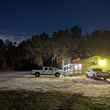
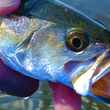
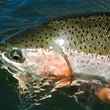
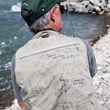
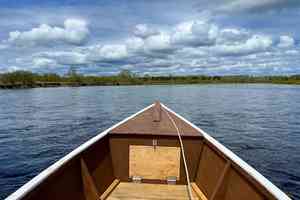


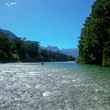
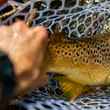
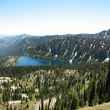
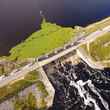
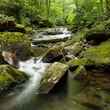
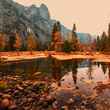



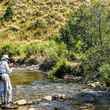
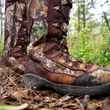



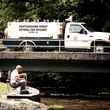

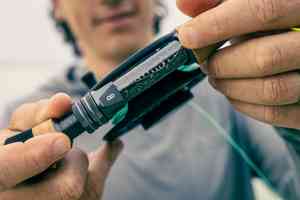
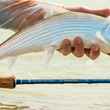
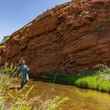

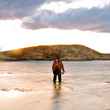
Comments